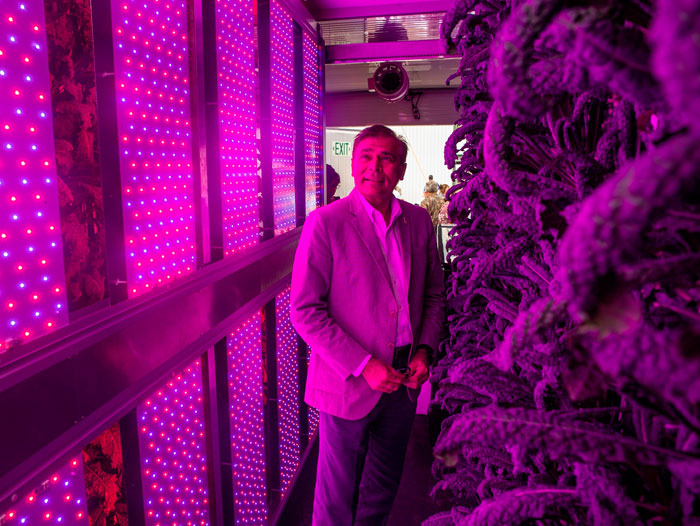UF/IFAS Study Identifies Trust in Science as Key for Supporting AI Use in Agriculture
February 17, 2025 | 3 min to read
A recent UF/IFAS study reveals that trust in scientific experts is the strongest predictor of support for artificial intelligence (AI) in agriculture. With over 87% of U.S. agriculture businesses using AI, addressing public skepticism is vital. The research highlights the importance of building trust and educating consumers about AI’s potential to enhance food security and safety. Negative perceptions stem from fears of danger and job loss, indicating a need for transparent communication and responsible AI practices.

Trust in scientific experts – even more than understanding their work – is the strongest predictor of support for artificial intelligence applications in agriculture. The finding is among conclusions reached by a new UF/IFAS study exploring Americans’ perceptions of AI-supported food and agriculture systems.
“This research shows that even if people lack deep technical understanding, their trust in experts can bridge the gap, making trust-building efforts essential for AI adoption,” said study author Cheng-Xian Yang, a postdoctoral associate with the UF/IFAS Center for Public Issues Education.
More than 87% of agriculture businesses in the United States use AI technology, but its universal application is paramount; the world’s population of 8.2 billion is expected to reach 10 billion by 2050. Food and crop production need to increase by 60% to keep up, according to United Nations estimates, and AI-supported agriculture is one of the most feasible methods for doing so.
“AI has the potential to enhance food security, improve safety and increase sustainability, yet public skepticism, trust in scientists and ethical concerns influence its adoption,” Yang said. “Understanding these attitudes can help policymakers, businesses and researchers address knowledge gaps, build trust and create transparent AI solutions.”
Yang and his team used an AI-powered database to analyze more than 485,000 online contributions from Americans related to the query “artificial intelligence + food system.” The database aggregated these comments, posts and discussions to reveal five overarching themes: pursuit of knowledge; trust; powerlessness in addressing systemic flaws; health; and the imagination of how AI can be applied – both positively and negatively.
To validate the themes, the researchers conducted an online survey of American adults that resulted in more than 1,000 responses. They learned trust in scientific experts who use AI in agriculture, and, to a lesser extent, respondents’ subjective knowledge of how it is used, positively influence support for the technology. Additionally, respondents’ belief in AI’s ability to reduce certain health concerns of food production – including germ contamination – correlated with positive perceptions.
“The strong public concern for health-related risks indicates that AI applications addressing food safety may gain consumer support,” Yang said.
The survey also identified sources of negative attitudes toward AI, including abstract anxiety about danger, cyberattacks, job displacement and inequitable implementation of the technology.
These findings are closely related to insufficient public knowledge about AI’s use in agriculture, and they can provide guidance to policymakers working to expand its use, according to the study.
“Future efforts should focus on educating consumers, ensuring responsible AI use and actively addressing concerns about data privacy and job security,” Yang said. “Steps like these will help bridge the gap between technological advancement and public confidence.”
ABOUT UF/IFAS
The mission of the University of Florida Institute of Food and Agricultural Sciences (UF/IFAS) is to develop knowledge relevant to agricultural, human and natural resources and to make that knowledge available to sustain and enhance the quality of human life. With more than a dozen research facilities, 67 county Extension offices, and award-winning students and faculty in the UF College of Agricultural and Life Sciences, UF/IFAS brings science-based solutions to the state’s agricultural and natural resources industries, and all Florida residents.
